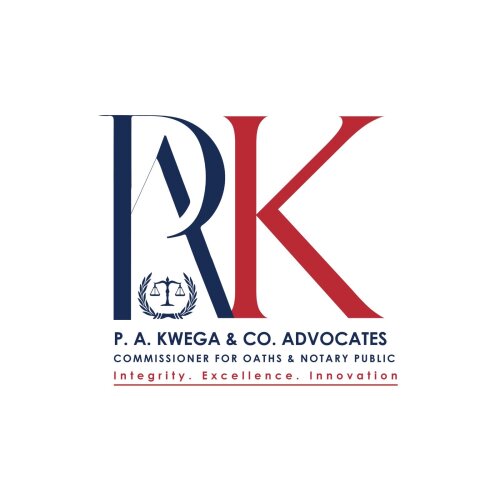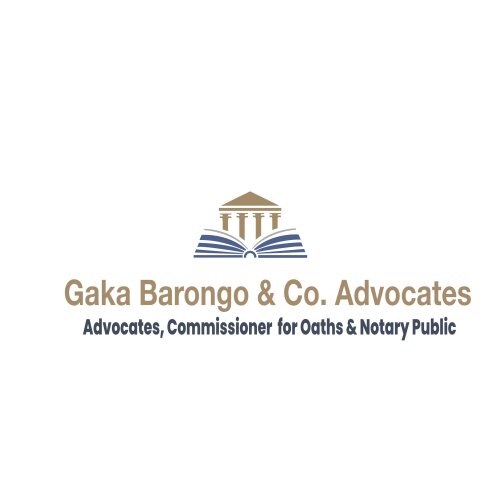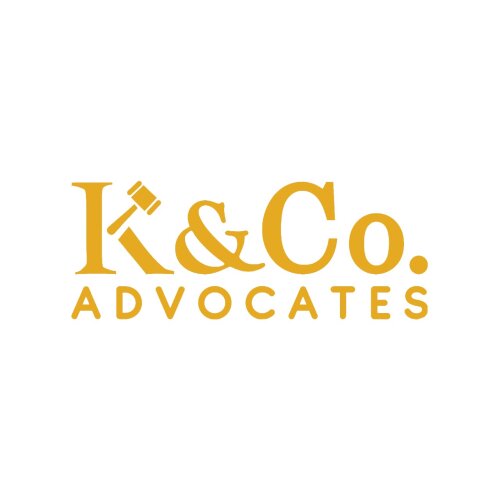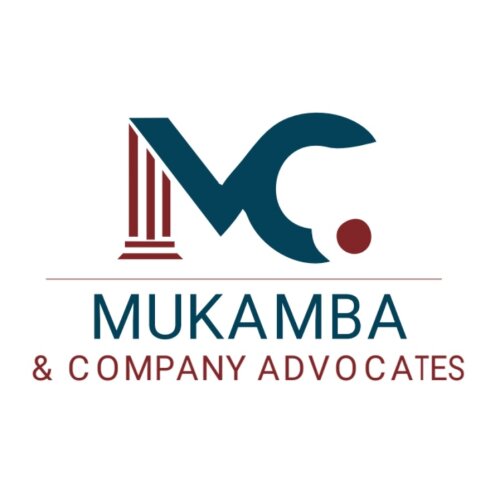Best Debt & Collection Lawyers in Kenya
Share your needs with us, get contacted by law firms.
Free. Takes 2 min.
Or refine your search by selecting a city:
List of the best lawyers in Kenya
Legal guides written by Adroit Law LLP:
- Kenya Launches Digital Nomad Visa: A Gateway for Remote Workers
- Navigating the Payment System License Maze in Kenya
- Navigating the Complexities of Mining Licenses and Permits in Kenya: A Look into Artisanal and Large-Scale Operations
Kenya Debt & Collection Legal Articles
Browse our 1 legal article about Debt & Collection in Kenya written by expert lawyers.
- Debt Collection Agencies in Kenya: What You Need to Know
- As legal professionals, advising clients on debt matters or engaging third parties for recovery requires navigating a complex landscape. Concerns surrounding the methods and effectiveness of debt collection agencies in Kenya are common, alongside critical questions about compliance and ethical conduct within the debt recovery process in Kenya.In Kenya's dynamic... Read more →
About Debt & Collection Law in Kenya
Debt & Collection Law in Kenya governs the legal processes and rights involved in the recovery of debts from individuals or businesses. This legal framework aims to ensure that both creditors and debtors are treated fairly and that disputes are resolved in an orderly manner. The law covers various aspects such as the rights of creditors to recover debts, the obligations of debtors, and the methods that can be employed in the collection process. It seeks to balance the need for the economy to run smoothly with the necessity to protect against unfair or aggressive debt collection practices.
Why You May Need a Lawyer
There are various situations where you may require legal assistance in matters of debt and collection:
- You're facing persistent harassment or threats from debt collectors.
- You need to understand your legal rights and obligations as a debtor or creditor.
- You're considering legal action against a debtor who has defaulted on payment.
- Your property has been unlawfully seized in a debt collection effort.
- You require negotiation assistance to settle outstanding debts amicably.
- You’re facing bankruptcy and need guidance on the legal implications.
- You want to prevent a bad credit listing.
- You need to contest a debt you believe is inaccurate or inflated.
- You aim to set up a debt collection agreement that protects your interests.
- You wish to recover a debt in a foreign jurisdiction involving Kenyan parties.
Local Laws Overview
In Kenya, debt collection is governed by a mix of statutory and common law principles. Key aspects include:
- The Consumer Protection Act outlines the rights of consumers and the obligations of creditors, ensuring practices are fair.
- The National Credit Act regulates how credit is provided and how debt collection must be conducted.
- Fair debt collection practices are legally enforced, prohibiting practices like harassment, threats, and deceit.
- The Insolvency Act provides a framework for dealing with bankruptcy and restructuring of debts.
- The Courts in Kenya are empowered to adjudicate disputes over debt collection and enforcement of the same.
Frequently Asked Questions
What is the legal interest rate on debt in Kenya?
The interest rate on a debt can vary based on contractual agreements, but statutory limits may apply to prevent usury. It's essential to consult a lawyer to understand the specific context.
How can a debtor defend against unlawful debt collection?
A debtor can lodge a complaint with consumer protection bodies or seek a court injunction against unlawful collection practices.
What are creditors legally allowed to do when pursuing a debt?
Creditors can take legal action to recover a debt, negotiate settlements, and engage debt collection agencies, provided they comply with fair practices.
Can a creditor seize a debtor's property in Kenya?
Property can be seized only with a valid court order. Unlawful seizure can be challenged in court.
How long can a debt be pursued in Kenya?
Typically, a debt is actionable within a statutory period of six years from the date it was incurred.
Are debt collection agencies regulated in Kenya?
Yes, debt collection agencies must adhere to regulations under the Kenyan legal system, including fair practices mandates.
What protection does a debtor have if wrongfully blacklisted?
A debtor can challenge the listing through the credit reference bureau or seek legal redress for wrongful blacklisting.
Can bankruptcy be declared voluntarily in Kenya?
Yes, an individual can voluntarily declare bankruptcy under the Insolvency Act to manage their debt obligations.
Are verbal agreements of debt enforceable in Kenya?
While verbal agreements can be enforceable, written evidence is often required for legal proceedings to establish the terms definitively.
What happens if a debt is in dispute?
A disputed debt can be negotiated out of court or resolved through judicial intervention, where the facts and legality are examined.
Additional Resources
For further assistance, consider reaching out to the following bodies:
- The Law Society of Kenya for a list of accredited legal practitioners specializing in debt and collection.
- The Consumer Federation of Kenya (COFEK) for guidance on consumer rights.
- The Central Bank of Kenya for issues involving financial institutions.
- Credit Reference Bureaus for matters concerning credit listings and disputes.
- The Office of the Ombudsman for cases involving misconduct by public service debt collectors.
Next Steps
If you need legal assistance with debt and collection, consider the following steps:
- Consult a lawyer: Seek legal counsel to understand your situation and the best course of action.
- Gather documentation: Collect all relevant documents, such as contracts, notices, and payment records.
- Negotiate: Attempt to resolve the issue through negotiation or mediation, often facilitated by legal professionals.
- File a complaint: If you're dealing with unfair practices, lodge a complaint with relevant authorities.
- Educational resources: Use workshops, seminars, or online courses to educate yourself about your rights.
Lawzana helps you find the best lawyers and law firms in Kenya through a curated and pre-screened list of qualified legal professionals. Our platform offers rankings and detailed profiles of attorneys and law firms, allowing you to compare based on practice areas, including Debt & Collection, experience, and client feedback.
Each profile includes a description of the firm's areas of practice, client reviews, team members and partners, year of establishment, spoken languages, office locations, contact information, social media presence, and any published articles or resources. Most firms on our platform speak English and are experienced in both local and international legal matters.
Get a quote from top-rated law firms in Kenya — quickly, securely, and without unnecessary hassle.
Disclaimer:
The information provided on this page is for general informational purposes only and does not constitute legal advice. While we strive to ensure the accuracy and relevance of the content, legal information may change over time, and interpretations of the law can vary. You should always consult with a qualified legal professional for advice specific to your situation.
We disclaim all liability for actions taken or not taken based on the content of this page. If you believe any information is incorrect or outdated, please contact us, and we will review and update it where appropriate.
Browse debt & collection law firms by city in Kenya
Refine your search by selecting a city.

















